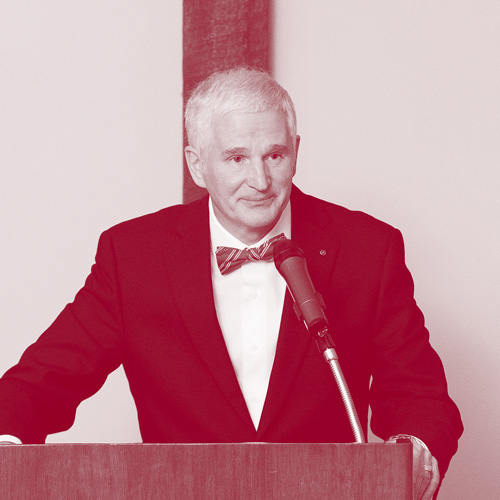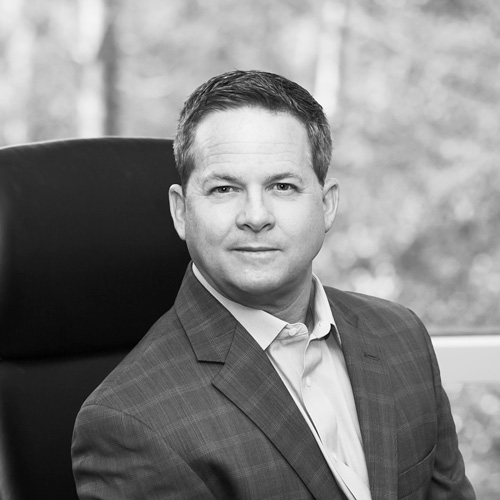From an early age, Smita Shah knew she was going to pursue a career in math and science. The subjects were her natural strengths, and she loved that there was always a clear-cut answer. But she had no idea that her penchant for arithmetic would lead to founding her own engineering firm—SPAAN Tech—which does everything from design engineering to construction management to providing IT services and facilities and program management.
“At some point in my sophomore year of high school, I was trying to figure out, ‘If you’re good at math and good at science, what do you do?’” Shah says. “My dad, who’s an engineer said, ‘You become an engineer.’ I was like, ‘OK. That’s how it happens.’”
So, following in her civil engineer father’s footsteps, Shah went on to earn a bachelor’s degree in civil engineering from Northwestern University, and then a master’s degree in civil and environmental engineering from MIT. She worked at renowned engineering firm Skidmore, Owings, and Merrill before going on to work with her father to negotiate a sixty-megawatt power project in India with Japanese financiers.
But in the late 1990s, Shah noticed an emerging market that she could cater to. She saw that companies needed people who knew not only technology but also engineering and infrastructure.
Engineer My Career: Smita Shah’s Tips
On Starting Your Own Business
“It was a great experience for me in that you learn two things. One, that you’re going to take on a challenge and you don’t mind taking on challenges, which is something that stayed with me. You also learn not to give up. From a young age, you’re trying to learn things. You don’t always know the answer, but you’re willing to try to figure it out.”
On Attracting Talent
“If you want to attract smart, talented people, you also need to have some of the other infrastructure components. Renting the office space is easy; getting phones and setup is something that you can do. But you also need to make sure that you have all the right benefits and that you understand how to make sure that the people that you work with are honored and recognized.”
On Communication
“When I was in middle school, one of my science teachers told me that it’s very important for us to be able to write our science papers so that anyone can understand them—to make the theory and the analysis of a complex idea as accessible to everyone as possible. Doing engineering work is complex. Most engineers who are trained as engineers can execute the project. The complexity comes from the interplay, the coordination, and the integration of all of the different systems that you’re going to put together.”
“At that time, most of the technology firms out there were performing IT setup and less infrastructure-related work,” Shah says. “I started the company to focus on infrastructure related to technology and then expanded into civil engineering.”
SPAAN Tech was born in 1998. The firm’s first challenge was finding clients, something that Shah had no experience doing. The other challenge was attracting top industry talent. Fortuitously, a big break for both challenges came from one project.
More than fifteen years ago, an engineering firm hired SPAAN to provide technology upgrades to a project it was working on for electricity utility Commonwealth Edison. Shah and the SPAAN team executed the project to the highest level, and within six months, ComEd hired SPAAN directly and became the firm’s first major client.
Similarly, after having a great experience working with the firm, the former real estate director of ComEd was set to leave his position. He reached out to Shah to see if any opportunities might be available for him to join the SPAAN team. Of course, the answer was yes, and because he was well-respected in his field, he helped attract more top talent to the company—essentially forming the basis of SPAAN’s talent pipeline.
“We’re a firm that wants to have highly experienced, top-level talent who are motivated to succeed,” Shah says. “We deliver the highest-quality product, and we want people on our team who are committed to our culture of success. With that consistent approach, we’ve been able to attract incredible individuals who’ve helped build a cohesive and supportive work environment.”
The firm has grown from a small team to nearly fifty people, and many of the leadership roles are filled by women, which Shah sees as an added bonus, though it was not necessarily by design.
“We’ve added many women to my leadership team over the past few years,” Shah says. “My entire team is actually really diverse and led by a core group of talented men and women, all of whom add their own value to the work we do. It’s something that makes me very happy.”
Now that they’ve added more and more top talent, the firm is also tackling high-profile projects in the state of Illinois. Recently, the firm helped construct a new runway at Chicago O’Hare International Airport, the second busiest airport in the world, by leading the electrical engineering efforts in the joint project. SPAAN also helmed a project updating a bathroom at the Federal Building in Chicago that ended up being one of the firm’s more notable projects.
“It was a small senate bathroom, but it turned out to be the one used by Senator Barack Obama,” Shah says. “It was a simple project, very small, notable only for the user, but you take pride in every project you do.”
Despite working on some noteworthy projects in the Chicago area, where SPAAN is headquartered, Shah finds the more mundane-sounding projects are more rewarding. At the end of the day, she sees SPAAN as less of an engineering firm and more of a company that connects communities.
“Infrastructure ends up being very personal,” she says. “We’re helping people go to work and to shop. We’re helping people fly to different places in an efficient way. We’re making communities livable.”
One project she points to was as simple as installing a streetlight. After the project, the area’s residents came up and thanked her personally. The streetlight made it safe for them to go out at night again.
Outside of SPAAN, Shah works to build community and make her hometown a better place to live. She is chairman of the President’s Council for the Museum of Science and Industry, and she’s on the boards of Ann & Robert H. Lurie Children’s Hospital of Chicago, the Environmental Law and Policy Center, and After School Matters.
“I’ve always felt that it was very important to be engaged in the community,” Shah says. “As a first-generation American, it’s a privilege. I’m raising my children in this city. My employees live in this city. They’re raising their families here. I feel a deep obligation to engage and contribute.”

